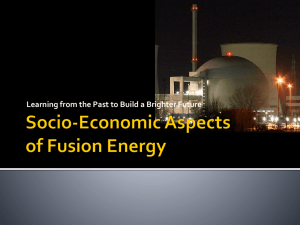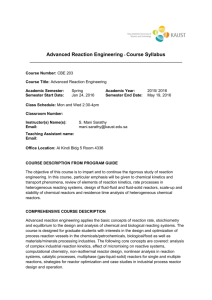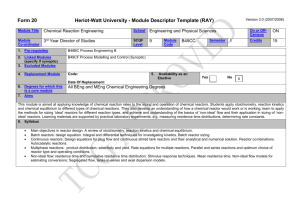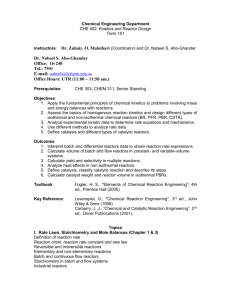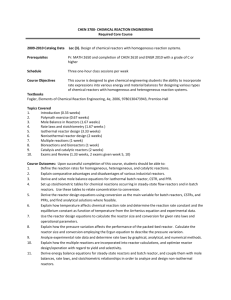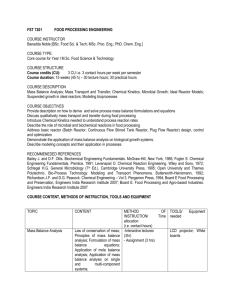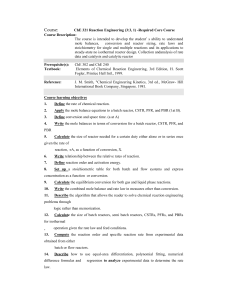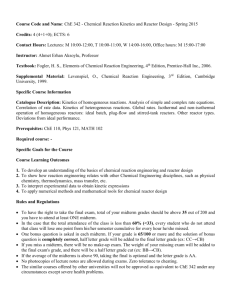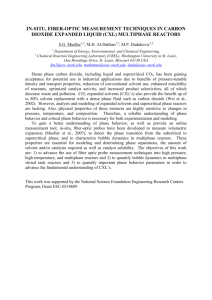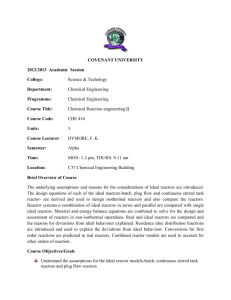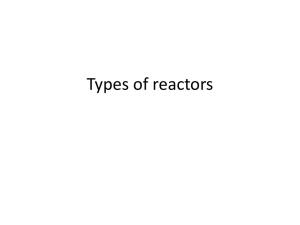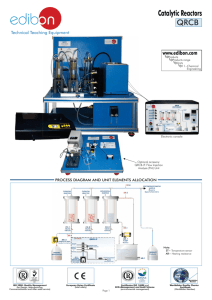Kinetics, Catalysis, and Reactor Design 16:155:514 SPRING 2016
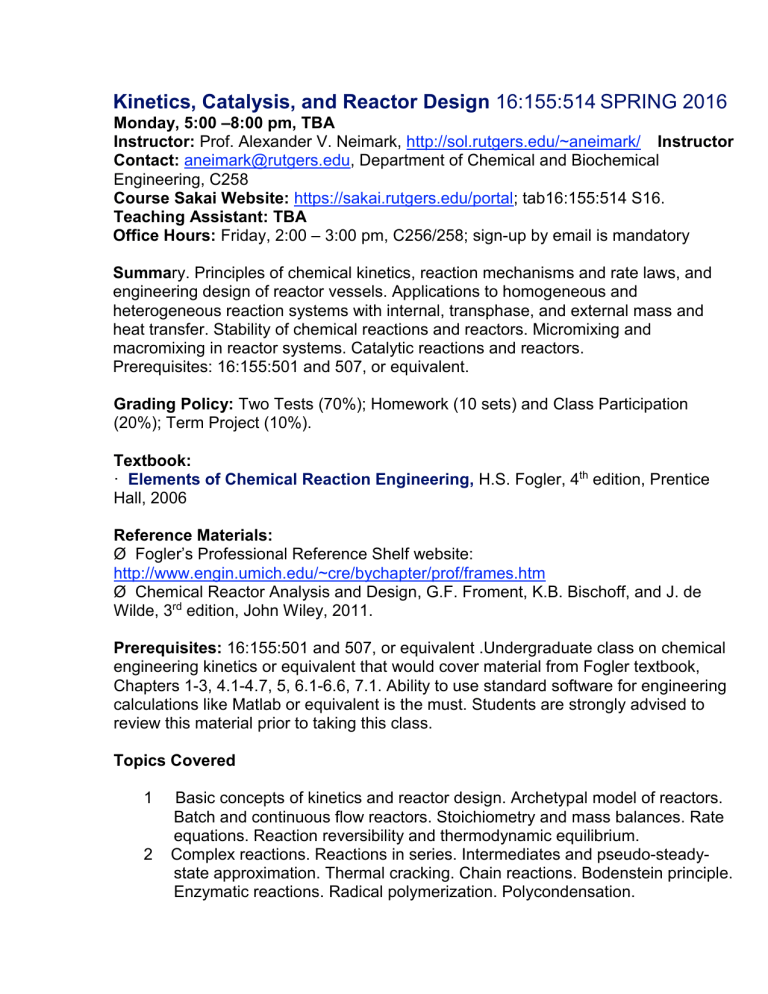
Kinetics, Catalysis, and Reactor Design
16:155:514 SPRING 2016
Monday, 5:00 –8:00 pm, TBA
Instructor: Prof. Alexander V. Neimark, http://sol.rutgers.edu/~aneimark/ Instructor
Contact: aneimark@rutgers.edu
, Department of Chemical and Biochemical
Engineering, C258
Course Sakai Website: https://sakai.rutgers.edu/portal ; tab16:155:514 S16.
Teaching Assistant: TBA
Office Hours: Friday, 2:00 – 3:00 pm, C256/258; sign-up by email is mandatory
Summa ry. Principles of chemical kinetics, reaction mechanisms and rate laws, and engineering design of reactor vessels. Applications to homogeneous and heterogeneous reaction systems with internal, transphase, and external mass and heat transfer. Stability of chemical reactions and reactors. Micromixing and macromixing in reactor systems. Catalytic reactions and reactors.
Prerequisites: 16:155:501 and 507, or equivalent.
Grading Policy: Two Tests (70%); Homework (10 sets) and Class Participation
(20%); Term Project (10%).
Textbook:
· Elements of Chemical Reaction Engineering, H.S. Fogler, 4 th edition, Prentice
Hall, 2006
Reference Materials:
Ø Fogler’s Professional Reference Shelf website: http://www.engin.umich.edu/~cre/bychapter/prof/frames.htm
Ø Chemical Reactor Analysis and Design, G.F. Froment, K.B. Bischoff, and J. de
Wilde, 3 rd edition, John Wiley, 2011.
Prerequisites: 16:155:501 and 507, or equivalent .Undergraduate class on chemical engineering kinetics or equivalent that would cover material from Fogler textbook,
Chapters 1-3, 4.1-4.7, 5, 6.1-6.6, 7.1. Ability to use standard software for engineering calculations like Matlab or equivalent is the must. Students are strongly advised to review this material prior to taking this class.
Topics Covered
1 Basic concepts of kinetics and reactor design. Archetypal model of reactors.
Batch and continuous flow reactors. Stoichiometry and mass balances. Rate equations. Reaction reversibility and thermodynamic equilibrium.
2 Complex reactions. Reactions in series. Intermediates and pseudo-steadystate approximation. Thermal cracking. Chain reactions. Bodenstein principle.
Enzymatic reactions. Radical polymerization. Polycondensation.
3 Theories of chemical reactions. Collision theory. Transition state theory.
Quantum and statistical mechanics foundations. Eyring equation.
4 Stability of chemical reactions. Periodic reactions. General theory of reaction stability. Belousov-Zhabotinsky and Briggs-Rauscher reactions.
5-6 Steady-state non-isothermal reactors. Energy balance. Adiabatic and nonadiabatic reactors. Dynamics of reactors. Multiple steady states. Mathematical foundations of dynamic theory. Theory of reactor stability.
7 Unsteady state non-isothermal reactors. Energy balance. Transition to steady state. Reactors with recycle. Multiple states.
8 Non-ideal reactors. Residence time distribution. Population balance theory.
Models of mixing.
9 Catalytic reactions and reactors. Heterogeneous reactions. Diffusioncontrolled reactions. Membrane reactors. Topochemical reactions.
10 Heterogeneous catalysts. Effectiveness factor of porous catalysts. Thiele modulus. Selectivity of catalytic reactions. Catalyst deactivation.
11 Catalytic reactors. Modeling packed-bed reactors. Fluidized bed reactors.
Multiple states and stability.
Important Dates
Jan. 25 – 1 st class
Feb. 29 – Midterm Test 1. Reaction kinetics
Mar. 12 - 20 – Spring break
Apr. 25 – Final Test 2. Reactor design
May 2 – Presentation of term projects
May 9 - reserved
